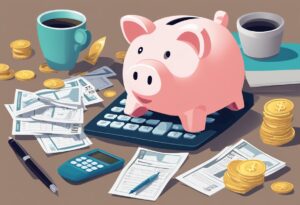
- Insurance
-
-
Most Popular
-
-
- Investing
-
-
Most Popular
-
Best Of
-
-
- Banking
-
-
Best of
-
Banking Reviews
-
Explore More
-
-
-
- Loans
-
-
Most Popular
-
Explore more
-
-
- Credit Cards
- Reviews
- Making Money
Your First Credit Card – A Guide
A credit card is useful in establishing creditworthiness. However, before deciding to apply for your first credit card, make sure you understand fundamental finance management. Never view it as a purchasing tool but instead as a credit building vehicle for future ventures. The rest of this guide will focus on the advantages and specifics of obtaining credit.
Written by:
What Are the Benefits ?
Credit cards are useful financial tools, but to experience the benefits of credit, you must use them responsibly. There are several potential benefits to credit cards:
- Credit score improvements
- Convenience
- Paying over time
- Fraud protection
The primary use for a credit card is to establish or build upon an existing credit profile. As you are looking into your first application, it is likely that you do not have a significant credit history. Securing your first card will help.
Cards also make purchases and balancing budgets easier. Every month you receive a statement showing the purchases from that month and your new balance.
When you need to make a larger or unexpected purchase, a credit card will allow you to break that purchase down into monthly payments. You will want to pay off the balance as soon as possible to avoid high-interest payments.
Identity theft and fraud are on the rise. Most issuers know this and protect consumers, meaning that as long as you report fraudulent activity in a timely manner, the issuer will not hold you responsible for the purchases.
Table of Contents
Should Everyone Have One?
Every responsible consumer should have one. The advantages far surpass the risks. However, responsibility is key. Too many first-time users look at credit cards as extra income or spendable cash, which they are not.
Cards are excellent tools for establishing and building credit, but they can also ruin a person’s credit quickly. If you are not someone who understands budgets or how to track spending, then a this may not be right for you, right now. Instead, focus on learning personal finance fundamentals.
Alternatively, a credit card may not be right for the timid user either. A card works best when it has a revolving balance, which means you need to use the card. If you are too afraid to use it, then you will not experience the credit building benefits.
The individual with a strong sense of his or her financial position and who can manage money and responsibility reliably is the right person to open a credit account. These users can earn money from using their cards and build a positive credit history, which will help when they want to make larger purchases.
When and How Should You Use it?
If you look at your this as a credit-building tool, then figuring out when to use it becomes easy. You want to use the card enough to show positive payment history, but not enough that you are carrying balances over from previous months.
It is good to look at a credit card like a carousel. Use it to make small purchases throughout the month, but then pay it off before the next month begins or within the grace period; then repeat the process again and again.
The key is to avoid accruing interest from month to month while demonstrating responsible spending and repayment. Therefore, while you may have a limit of $5,000, you do not want to max out the limit. Instead, never have a balance over 50% of the card limit, and never use a card for a purchase you cannot pay off within the grace period for your card.
Example Purchases
Using a credit card is essential for realizing the many benefits, but you need to use it responsibly. There are many ways potential uses:
- Small, routine purchases
- Bills
- Gas
- Groceries
The key is not using a credit card like extra money. Instead, use it in place of normal budgetary purchases and then use the money you would have used to pay off the credit card bill at the end of the month. By using a card in this way, you ensure that you do not spend outside of your means and you stay out of debt.
Steps To Receive Your First Credit Card
There are many credit card opportunities available. However, not all options are suitable for first-time users. Follow the six-step process for finding and applying for your first card:
- See if you have an existing credit report and score
- Based on your history, determine if a student card is an option
- Compare starter cards, both secured and unsecured
- Find cards with low or no fees
- Consider the specifics of each available option
- Submit your application
Remember that even applying can lead to negative consequences on your credit score. Try to apply to only those cards best suited to you or those cards that do not require a hard inquiry.

Join the MoneyMash community!
Sign up to get the latest personal finance news.
© 2025 MoneyMash an Element Road, LLC Company.
MoneyMash is an independent, advertiser-supported site. We may receive compensation when you click to apply for some products using the links that you find on our website. Opinions presented on our website are those of MoneyMash or our team of writers and reviewers who post their own opinions. For more information, please read the full disclosure.
